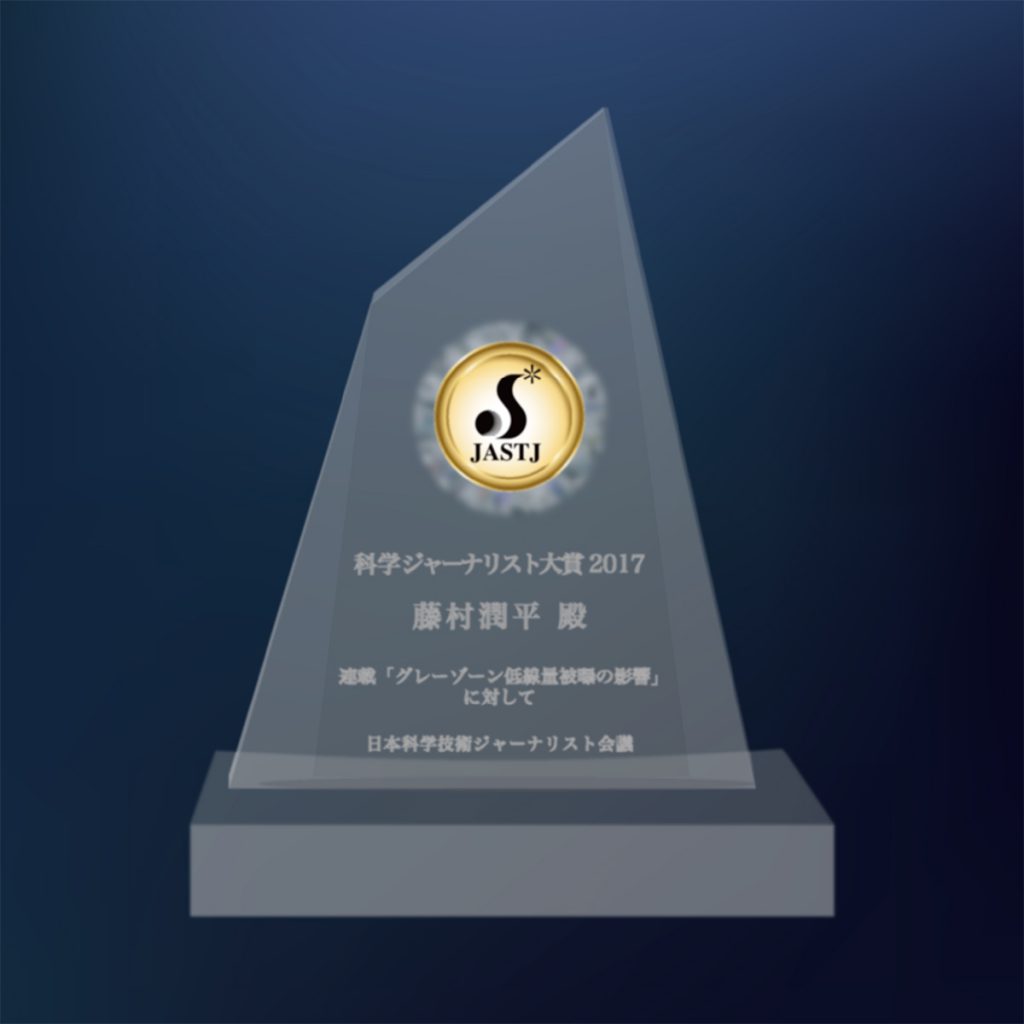
This year’s winners will be announced on April 25 2018. Please visit https://jastj.jp/arc1805/jastj_prize for more details on the information including past winners; sorry, only in Japanese.
Outline of the awards
The Science Journalist Awards (JASTJ Awards) were established by the Japanese Association of Science & Technology Journalists (JASTJ) in 2006 in order to encourage the development of Science and Technology Journalism. The awards are given annually to individuals or groups who have achieved superior accomplishments in reporting, publishing, or video production of issues pertaining to science and technology.
The recipients are individuals, or groups through their representatives, who may be scientists, or science and technology communicators. They include not only those active in newspapers, TV, radio, publishing, or other mass media, but also those who communicate through web sites and exhibitions in museums as well as authors of superior introductory books. Typically, 3 or 4 prizes and 1 Grand Prize are awarded annually. A special prize for science communicators with museum exhibitions is also given.
Screening
Grand Prize and other prize winners are determined by collecting and screening recommended works.
JASTJ calls for the submission of entries from its approximately 200 members, and through its web site, also calls for entries from non-members. Between 60 and 70 entries are submitted every year. Those entries submitted are divided among members who have volunteered to act as referees. The referees evaluate the entries by reading, scoring, and commenting on each one. Each submitted entry is evaluated by several members.
A subcommittee including directors in charge of awards and literary critics, refers to the evaluations as they perform the primary screening and select approximately 10 entries. A final screening is then conducted by a committee consisting of outside experts and JASTJ directors who announce the winners of the Grand Prize and other prizes, and also the reasons for their decisions.
The outside experts aggressively discuss each decision. The screening committee of outside experts as of October 2017 included five experts: Aizawa Masao (Councilor Japan Science and Technology Agency), Asashima Makoto (Professor Emeritus of University of Tokyo, Vice President of the Tokyo University of Science), Shirakawa Hideki (Professor Emeritus of Tsukuba University, winner of the Nobel Prize for Chemistry), Murakami Yoichiro (Professor Emeritus of University of Tokyo, Professor Emeritus of International Christian University), and Yonezawa Fumiko (Professor Emeritus of Keio University).
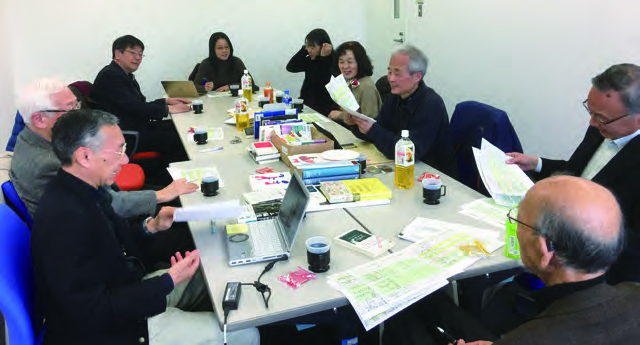
Primary screening by subcommittee
Awards Ceremony
Every year in May, prize winners, other involved persons, and JASTJ members are invited to the JASTJ Awards ceremony held in the Press Center Building in Tokyo.
At the awards ceremony, a director in charge of the Awards explains the screening process, and members of the outside screening committee evaluate the entries, present plaques to the prize winners, and give an overall assessment of the event. Photographs are taken and the prize-winners address the audience. Books, newspaper articles, and other prize-winning entries including videos are displayed and shown in the venue. The chairman is a JASTJ member employed as a commentator by NHK (Nippon Hoso Kyokai).
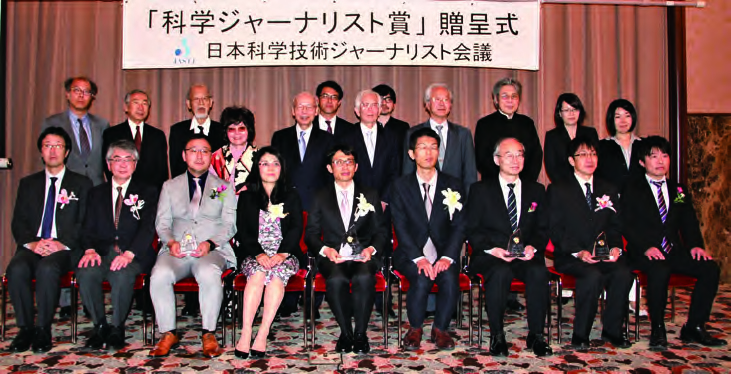
Prize-winners and Screening Committee Members
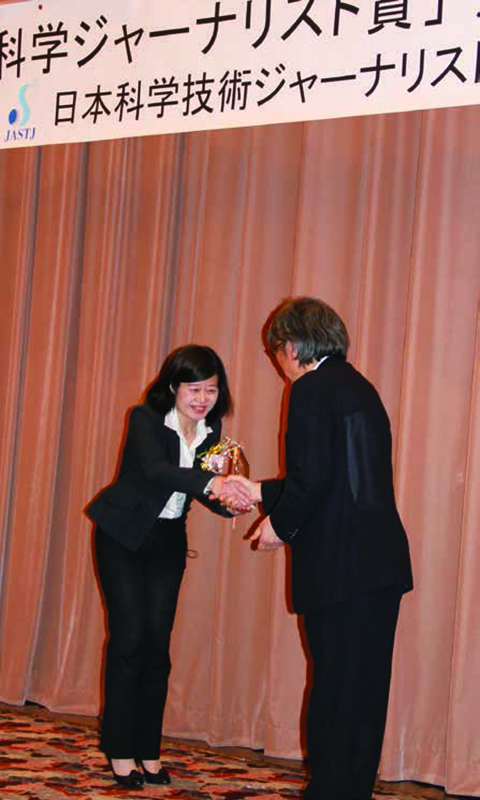
Presentation of plaque
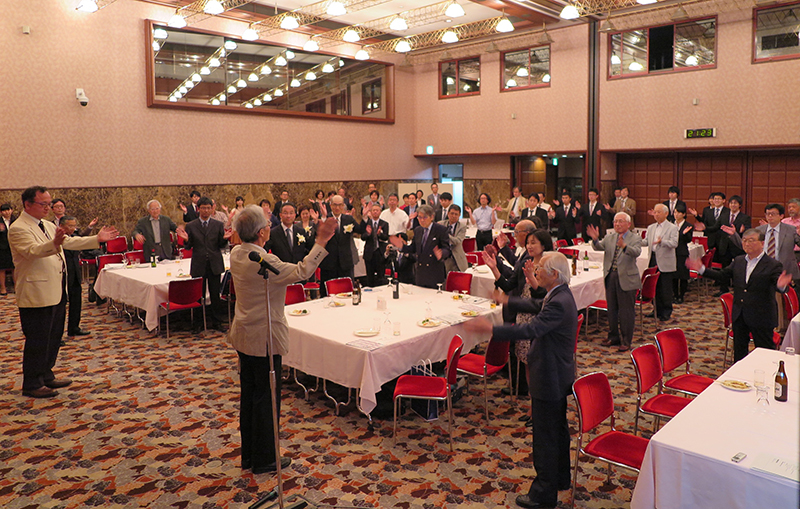
Award Ceremony Venue
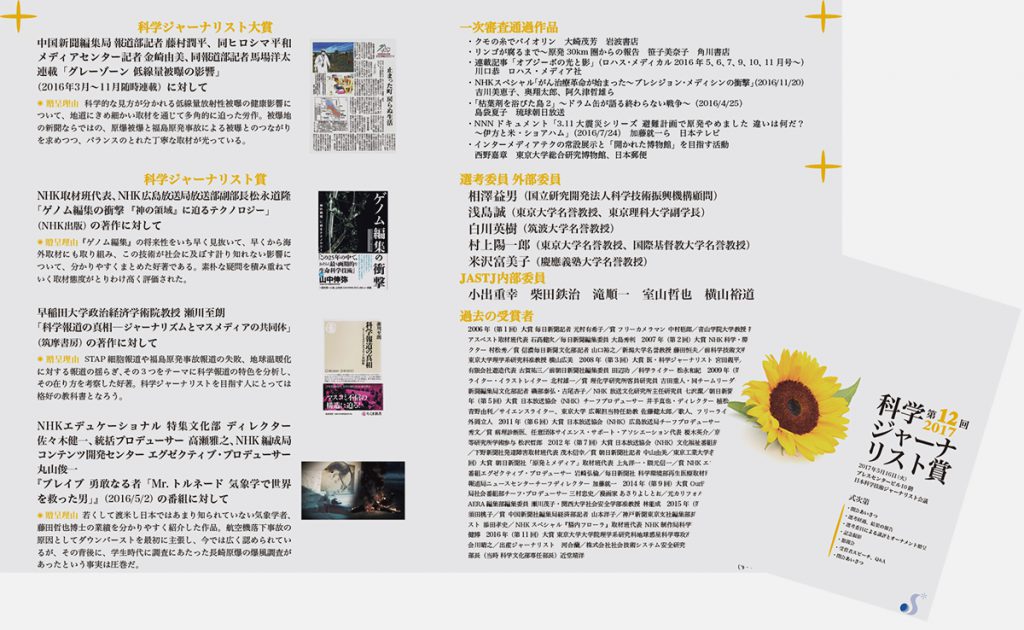
Award Ceremony Program
Impact on Society
The prize-winning entries are presented using various media.
When a newspaper reporter or broadcast journalist is awarded a prize, his winning will be announced the next day on the pages of his affiliated newspaper, or during his news show, or on his web site. When an author is given an award, copies of his book are then sold featuring a belly-band announcing the author’s reception of the Science Journalist Award.
The JASTJ will continue to contribute to the development of Science and Technology Journalism in Japan and around the world through its Science Journalist Awards.